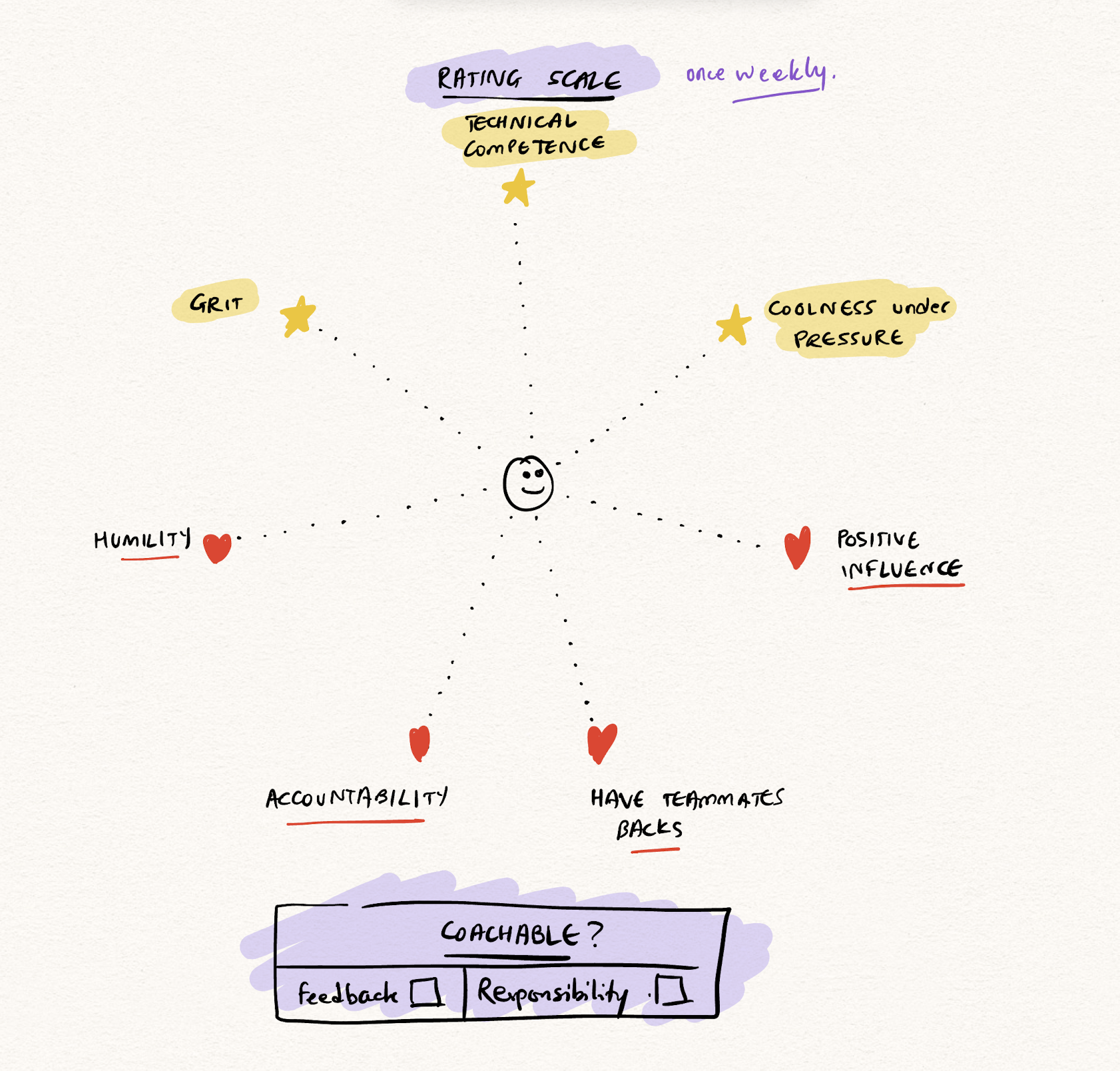A great team is greater than the sum of its parts. The greatest strength of humanity lies in our ability to form large groups of people all working towards the same goal. Some of the greatest stories of human accomplishment come from such organised, collective efforts.
But how do you determine whether someone is geared towards working in such teams? How do you figure out if a person you work with will join hands with you and together, your output will be greater than the sum of your individual parts?
3 parameters to evaluate people –
- Technical skills (⭐️)
- Technical competence
- Coolness under pressure
- Grit (persistence when faced with a difficult task)
- People skills (❤️)
- Positive influence
- Having teammates’ backs
- Accountability
- Humility
- Coachability
- Open to feedback
- Takes responsibility for their mistakes

Technical and people skills are coachable, i.e., you can help people improve these skills.
Coachability is generally more fixed. This means that the two key skills under the coachability umbrella are a determinant of whether someone can grow to become a great part of a team or not.
The key aspects to look out for when you first work with someone are –
- What do they do when they make a mistake?
- Do they try to cover it up / hide it / blame someone else for it? OR
- Do they own up to it and take responsibility?
- Are they open to feedback?
If they avoid responsibility for their mistakes and are closed to feedback, that’s a very early and clear sign that they can’t be a key part of a team that is more than a sum of its parts. Even if they’re a star performer in terms of their technical skills (like, for example, the best endodontist in the country).
The true strength of this rating scale shines out when you add a key ingredient to it — the time axis. Repeat this evaluation for everyone on a regular (ideally once weekly) basis. Any rating that a person receives is generally a snapshot in that moment in time. Because most of these skills are coachable, a person’s skill level fluctuates constantly.
In order to avoid the trap of putting someone in a box forever, a weekly rating system gives you a shifting lens to work through – you never have a fixed opinion of your teammates. You’re always looking for signs of change and improvement, and are always willing to give them a second chance and to help them grow into more integrated members of your team.
In summary, work with people who are coachable, i.e. who don’t shy away from accepting when they made a mistake, and who are always open to feedback.
As long as someone is coachable, even if their skill level is the lowest you’ve ever seen, their attitude will make sure that they’ll acquire the skills they need for their role much better than someone who is already at a high skill level but completely closed to feedback and always hides their mistakes.
As most of the greatest organisations say, hire for attitude, train for skills.

Leave a Reply